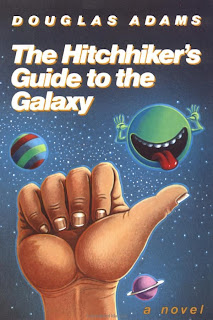Hello All!
Happy Easter and Easter Break for the GSAS! I hope you are enjoying your holiday and/or days off from class! I most likely will be using at least part of Good Friday as a "dissertation day," whatever that will turn out to mean, but then I will have some time to celebrate being with my family. Yay!
This week and weekend it is also Passover, and those of my friends and colleagues who celebrate this important Jewish holiday have been sharing their traditions and customs with me as well. Although I can't reminisce about any of my own Passover memories (because I don't have any), here's a great blog post that I enjoyed reading about one writer's Passover traditions.
This week and weekend it is also Passover, and those of my friends and colleagues who celebrate this important Jewish holiday have been sharing their traditions and customs with me as well. Although I can't reminisce about any of my own Passover memories (because I don't have any), here's a great blog post that I enjoyed reading about one writer's Passover traditions.
Okay, so that image of the seder plate has given me some food for thought. I was trying to think about the Easter holiday traditions in my family, and all I could think about in my head were gleaming, colorful, delirious, Willy-Wonka-Factory style images of Easter candy!
I am not sure exactly what is happening in my brain right now -- why it is making a Dr. Seuss like cartoon world out of my Easter candy memories -- but whatever that is, I am definitely getting nostalgic for Easter treats that were loaded up inside the great Easter baskets that my mom and dad used to make us.
Yes, I know, Easter baskets have really nothing to do with the original existence of the holiday, but I did find a couple great articles about the history of Easter candy that were actually pretty fascinating! Here's one. Anyway, knowing that candy ≠ Easter now as an adult doesn't really do anything to take away my nostalgia for Easter candy from my childhood! So -- while I hope no one is offended by this candy-filled, non-religious, sugary post, here is a quick walk down my Easter candy memory lane!
I am not sure exactly what is happening in my brain right now -- why it is making a Dr. Seuss like cartoon world out of my Easter candy memories -- but whatever that is, I am definitely getting nostalgic for Easter treats that were loaded up inside the great Easter baskets that my mom and dad used to make us.
Yes, I know, Easter baskets have really nothing to do with the original existence of the holiday, but I did find a couple great articles about the history of Easter candy that were actually pretty fascinating! Here's one. Anyway, knowing that candy ≠ Easter now as an adult doesn't really do anything to take away my nostalgia for Easter candy from my childhood! So -- while I hope no one is offended by this candy-filled, non-religious, sugary post, here is a quick walk down my Easter candy memory lane!
My favorite always used to be the small chocolate eggs hidden deep inside the basket -- yum! Little chocolate bites -- and after unwrapping those little brightly colored foil wrappers, they just metled in your mouth! Yum!
My sister loved Peeps -- I never was sure if it was because they were delicious, or because they were so cute!!! Btw, this reminds me of a funny story about Peeps and religious persecution on the Stephen Colbert show... click here to see "Easter Under Attack!"
My brother's favorites were Cadbury Eggs --- the ooey gooey white and yellow cream inside a hollow chocolate egg... mmm! They were, for him, as far as Easter candy went, the "only game in town."
If this floats your boat more than the marshmallowy cuteness of peeps, you may enjoy viewing "Easter Under Attack, Egg Edition!"
Some honorable mentions? Take a look and walk down Easter memory lane with me and my siblings. If you didn't have the tradition of Easter baskets in your family, here is what you may have been missing:
Malted eggs:
Reece's Pieces eggs:
but not Reece's Peanut Butter Eggs -- not the right chocolate peanut butter ratio, according to my sister's memories.
My sister mentioned "Just Born" Jelly Beans -- I remember these! These just bursted with flavor in your mouth -- juicy, chewy -- so good. These were before Jelly Bellies gained in popularity. If you can find them now, they are worth the sugary calories!
Lately, I have a new craving when it comes to Easter candy: buttered popcorn flavored Jelly Belly jelly beans! I love all flavors of Jelly Bellies, but sometimes I day dream about a big bowl of JUST buttered popcorn flavored ones.
Don't forget the awesome fake colored grass that went inside each basket!
Okay, that is my blast from the past. I hope you and your family are enjoying your holidays and holiday traditions, whatever they may be!
And..... drum roll, please! Here is the Easter/ April installment of "The Dissertation Blues"!
And..... drum roll, please! Here is the Easter/ April installment of "The Dissertation Blues"!
The Dissertation Blues
Easter/April Edition
by Joy Zitelli
Easter is here, but I can't hop;
for new subject matter, I should shop
Could be hiding Easter eggs...
this paper is as fun as
the black plague!
For the Easter bunny,
I'll leave a carrot;
my nights are as
repetitive as a parrot.
I'll stir up some pastel dyes --
I can only wonder why,
seems no matter what I do--
my eggs are dissertation blue!



























